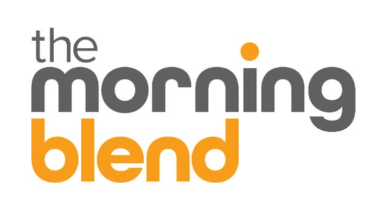TNJ Business Briefs – The Network Journal


Financial empowerment
The National Association of Real Estate Brokers (NAREB) kicked off its Building Black Wealth Tour in Houston, Texas, on October 7, with events planned in more than 60 cities nationwide over the next two years to empower Black communities with steps towards homeownership, property investment, starting a business, and other wealth-building opportunities. Working with the African American Mayors Association and the National Bar Association, NAREB will sponsor events that include classes, workshops, and one-on-one counseling on home buying, investing, credit, and careers in real estate. The tour will include Birmingham, Ala. (11/11/23), Charlotte, N.C. (3/2/24), Mt. Vernon, N.Y. (4/13/24), Little Rock, Ark. 6/8/24), New Orleans (8/3/24), Atlanta (11/9/24), Miramar, Fla. (3/25), Beverly Hills, MO (6/25) and Los Angeles (8/25). NAREB signed agreements with Delta Sigma Theta Sorority and Phi Beta Sigma Fraternity at the kickoff event to support the tour.
Wealth gap progress stalls. Progress on the 6:1 racial wealth gap has stalled, reports the Brookings Institution’s Center for Economic Security and Opportunity. Pulling together data on wealth by race going back to the Civil War era, authors of Wealth of Two Nations: The U.S. Racial Wealth Gap, 1860-2020 found the gap improved from a ratio of 60:1 to 6:1 over this period, but convergence has stalled since the 1950s. In the past few decades, capital gains have been more important in wealth accumulation and white households have disproportionately benefitted, the authors write. They argue that policies to reduce racial gaps in savings and capital gains are beneficial, but on their own would take hundreds of years to result in equal wealth levels.
Carver Federal Savings Bank (“Carver”), a certified Community Development Financial Institution (CDFI) and designated Minority Depository Institution (MDI), launched a three-pronged suite of cash management services to support the growth of small and larger businesses across the greater New York City region. The suite’s Money Management service offers business mobile and online banking, mobile deposits, remote deposit capture, and FDIC-insured products over $250K. Bank Safely and Securely services include “Positive pay” to protect customer funds “by allowing them to input and review all checks issued on their accounts proactively,” and “ACH positive pay,” that allows customers to have control of companies that can access their accounts via ACH. The third prong addresses Payment Solutions, providing merchant services, online wires, business debit and credit cards, bill pay, and ACH origination.
Alpha Kappa Alpha Sorority, Incorporated®, the oldest Greek-letter organization established (1908) by African American college-educated women, launched For Members Only Federal Credit Union, the country’s first Black-owned, woman-led, sorority-based digital banking financial institution. The credit union’s stated primary goal is to empower its members, addressing their specific needs and contributing to their overall economic growth and stability.
Higher education
How Black students changed the face of higher education. Executive produced by African-American filmmaker Stanley Nelson Jr., a multi-award-winning documentary titled The Five Demands is a riveting story about the student occupation that changed the face of higher education forever. In April 1969, a small group of Black and Puerto Rican students shut down the City College of New York (CCNY), an elite public university located in the heart of Harlem. Archival footage and modern-day interviews vividly depict the students’ struggle against the institutional racism that, for over a century, had shut out people of color from this and other public universities. In the wake of the U.S. Supreme Court’s gutting of affirmative action as a factor in university admissions, The Five Demands revisits the untold story of the explosive student takeover and proves that a handful of ordinary citizens can band together to take action and effect meaningful change. The film is being screened nationwide upon request by myriad groups and organizations. TNJ Executive Editor Rosalind McLymont was involved in the student takeover and is featured in the film.
Clark Atlanta University (CAU). The university received a $1 million scholarship endowment gift and a $50,000 bridge grant from The Bernard Osher Foundation to support scholarships for nontraditional undergraduate students who wish to return to the University to complete their education. The University’s Osher Reentry Scholarship Program is managed by the school’s Scholarship Office and is open to nontraditional students who have been out of college for at least five years and have plans to work after graduation. According to CAU, the scholarship endowment gift of $1 million will fund 10 Osher scholarships each academic year, while the bridge grant of $50,000 will support eligible scholars until the endowment matures.
Spelman Alumnae. Marking the 50th anniversary of their graduation, leaders of Spelman College’s class of 1974 developed and launched the national “Women for Golden Futures” (WFGF) fundraising initiative with a goal to raise $1 million dollars annually in philanthropic donations within the next year. The funds raised through the campaign will go directly to the college and will be used specifically for the Women for Golden Futures Scholarship and the Student Support Fund for those deserving young women whose education and futures are at risk due to a shortage in fiscal resources.
Health, jobs, careers
Phase I of the Black Women Thriving East of the River initiative currently is being implemented with continued support from the Jane Bancroft Robinson Foundation (JBRF). The initiative empowered Black women across the Anacostia River to develop interventions that address two of their most pressing challenges: cancer survival and opportunities for quality jobs and careers. The foundation and women from the community, including physicians, community activists, and non-profit leaders, began their work in 2019, from defining and understanding the problems to developing solutions to dismantle harmful systems.
STEM: Protecting against AI deepfakes
Seven AI tech giants – OpenAI, Microsoft, Google, Meta, Amazon, Anthropic, and Inflection – have committed to watermarking AI-generated content. The goal is to label the provenance of AI-generated text, video, audio, and images, thereby reducing the risk of misleading users about the content’s origins. Deepfakes have been used in many controversial ways, like creating viral fake images or scamming people out of large sums of money. OpenAI and Google are leading the charge. Google also plans to integrate metadata (along with other innovative techniques) to promote trustworthy information.





